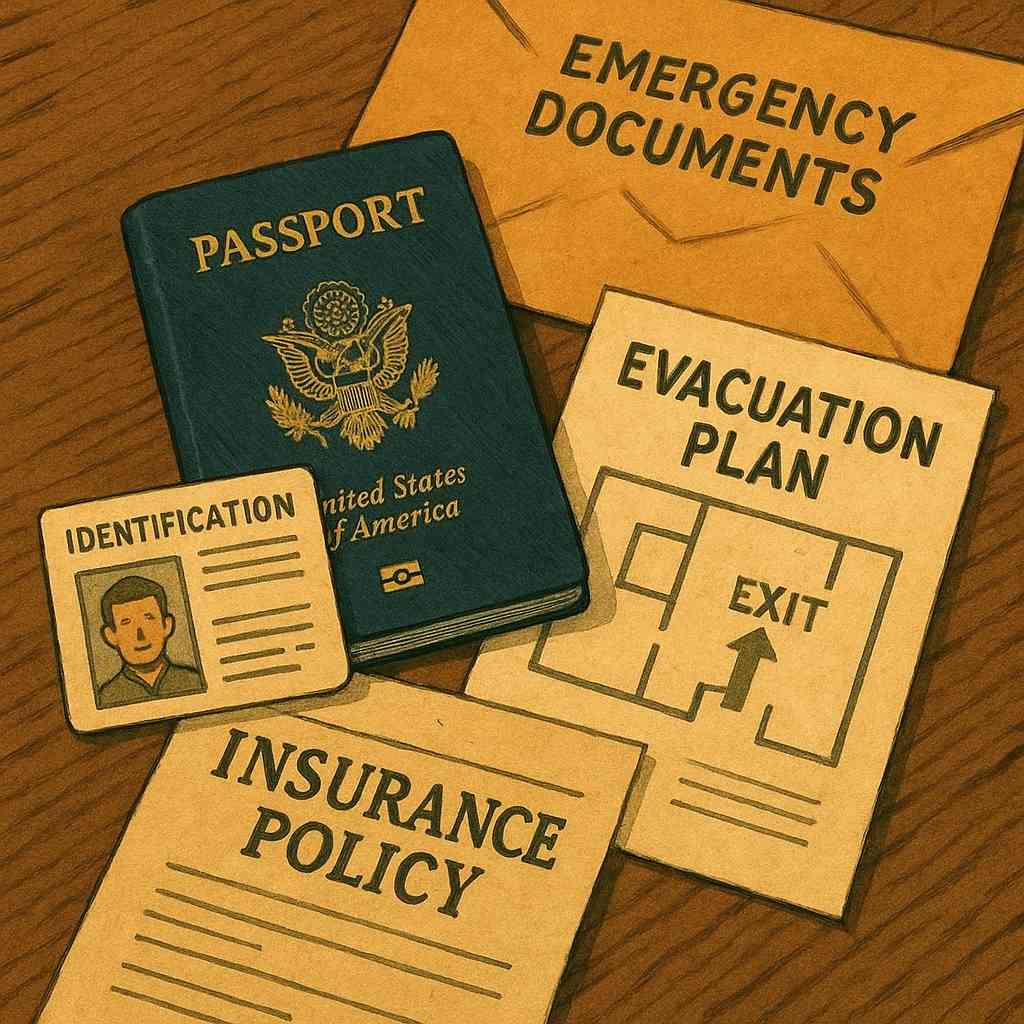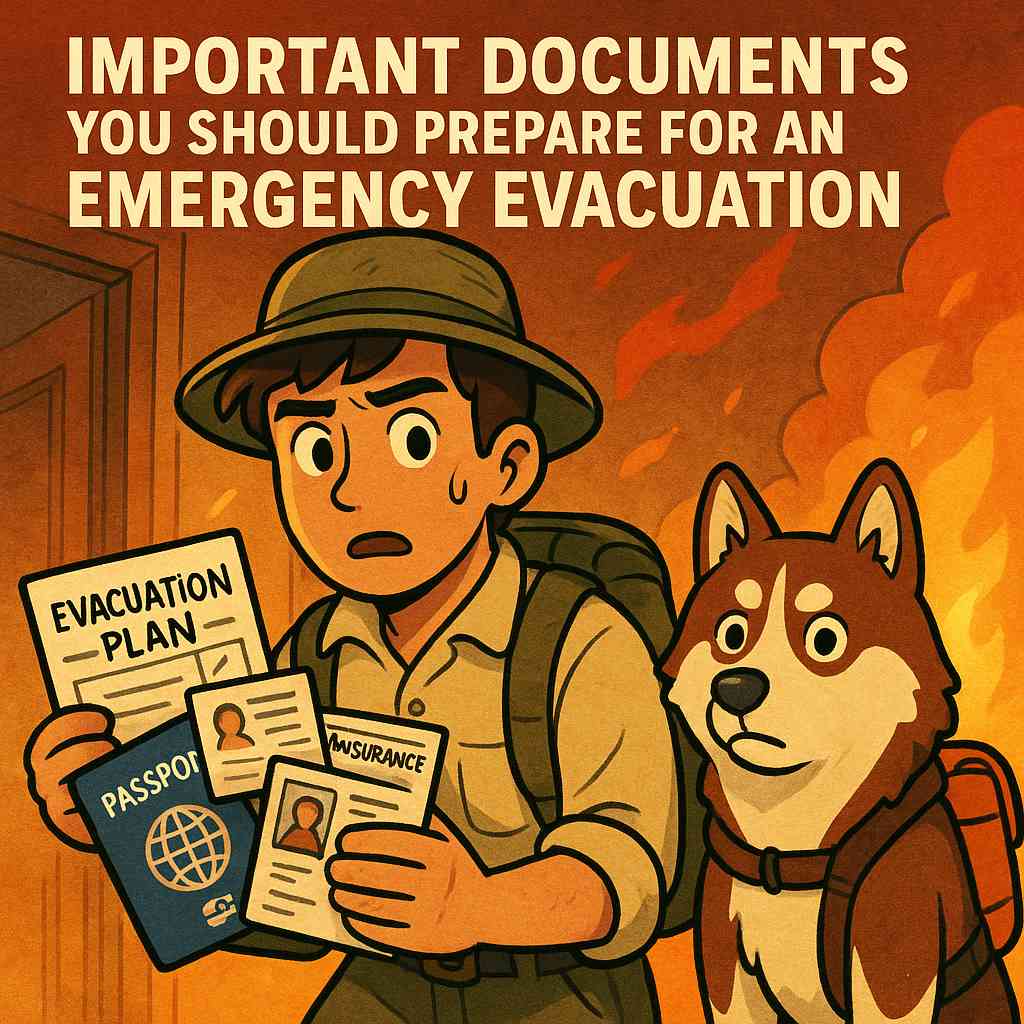Disasters strike fast—wildfires, floods, sudden evacuations. In the chaos, your survival could depend on the papers you carry. Without critical documents, accessing healthcare, insurance, or even proving your identity becomes nearly impossible. Preparation now means peace of mind later. Here’s how to build an emergency document kit that can save your life when every second counts.
- ✅ Why Emergency Documents Matter
- ✅ Essential Documents You Must Include
- ✅ How to Safely Store Your Emergency Documents
- ✅ Creating Digital Backups for Extra Security
✅ Why Emergency Documents Matter
After a disaster, rebuilding your life requires proof—proof of identity, property ownership, insurance coverage, and more. Without critical paperwork, filing claims, accessing funds, or even checking into shelters becomes complicated. For example, after Hurricane Katrina, thousands were displaced without access to their identification, delaying aid and relocation efforts. Emergency documents bridge the gap between chaos and recovery. A little preparation now ensures your future stability after the unexpected, giving you a head start when the system is overwhelmed.
✅ Essential Documents You Must Include
Your emergency evacuation document kit should cover a variety of critical areas to ensure you’re protected:
- Identification: Passport, driver’s license, and birth certificates validate who you are in any situation, from hospital admittance to border crossings.
- Medical: Health insurance cards, vaccination records, and medical contact info allow you to access urgent care without delays.
- Financial: Bank account information, insurance policies, and property deeds are vital for filing claims and recovering losses after a disaster.
- Legal: Wills, powers of attorney, custody documents ensure your wishes are respected even during times of chaos.
- Emergency Contacts: Printed lists ensure you can reach family, friends, or service providers even if your phone dies or networks crash.
Think about personalizing your list based on your family’s specific needs—include pet medical records or professional licenses if necessary.
✅ How to Safely Store Your Emergency Documents
Simply tossing documents in a backpack won’t cut it. Protect your paperwork from fire, floods, and physical damage. Use waterproof and fireproof document bags specifically designed for emergencies. Better yet, invest in a small, portable safe that can be easily grabbed during evacuation. Store your kit close to an exit, ideally alongside your bug-out bag. Consider also placing a backup copy with a trusted family member who lives outside your region. Redundancy can be the difference between complete recovery and devastating loss.

✅ Creating Digital Backups for Extra Security
Paper burns, floods, and tears—but digital backups live on. Scan all critical documents and save encrypted copies in cloud storage solutions like Google Drive, Dropbox, or OneDrive. Choose platforms that offer two-factor authentication and strong encryption. Also back up these files onto a secure USB flash drive stored in your emergency kit. This dual method protects you from both physical and technological disasters. Always test access to your backups regularly and update your files after major life events like marriage, new property acquisition, or births.
Emergencies don’t just test your survival skills—they test your ability to recover. Preparing critical documents today means fewer headaches tomorrow. Don’t wait for disaster to strike. Build your emergency evacuation paperwork kit now and secure your future, no matter what comes your way. Being ready with the right papers gives you an edge when the world turns upside down.
✅ Frequently Asked Questions (FAQ)
- Q1. What documents should be in a go bag?
ID cards, insurance policies, medical records, financial documents, and emergency contacts should always be included for rapid evacuation and recovery. - Q2. How do I protect documents from water and fire damage?
Use waterproof, fireproof bags or safes rated for disaster conditions. Store them near exits for quick access during an evacuation order. - Q3. Should I keep copies of documents at another location?
Yes, duplicating your essential papers and storing them offsite with a trusted person significantly boosts your resilience during widespread disasters. - Q4. Are digital backups safe during disasters?
Yes, provided you use encrypted cloud storage and backup drives stored securely. Having offline and online versions maximizes your chances of quick recovery.
For a complete emergency survival setup, don’t miss our guide on bug-out bag essentials to be fully prepared for any situation.
For official evacuation preparedness tips, visit the Ready.gov Evacuation Planning Guide.

